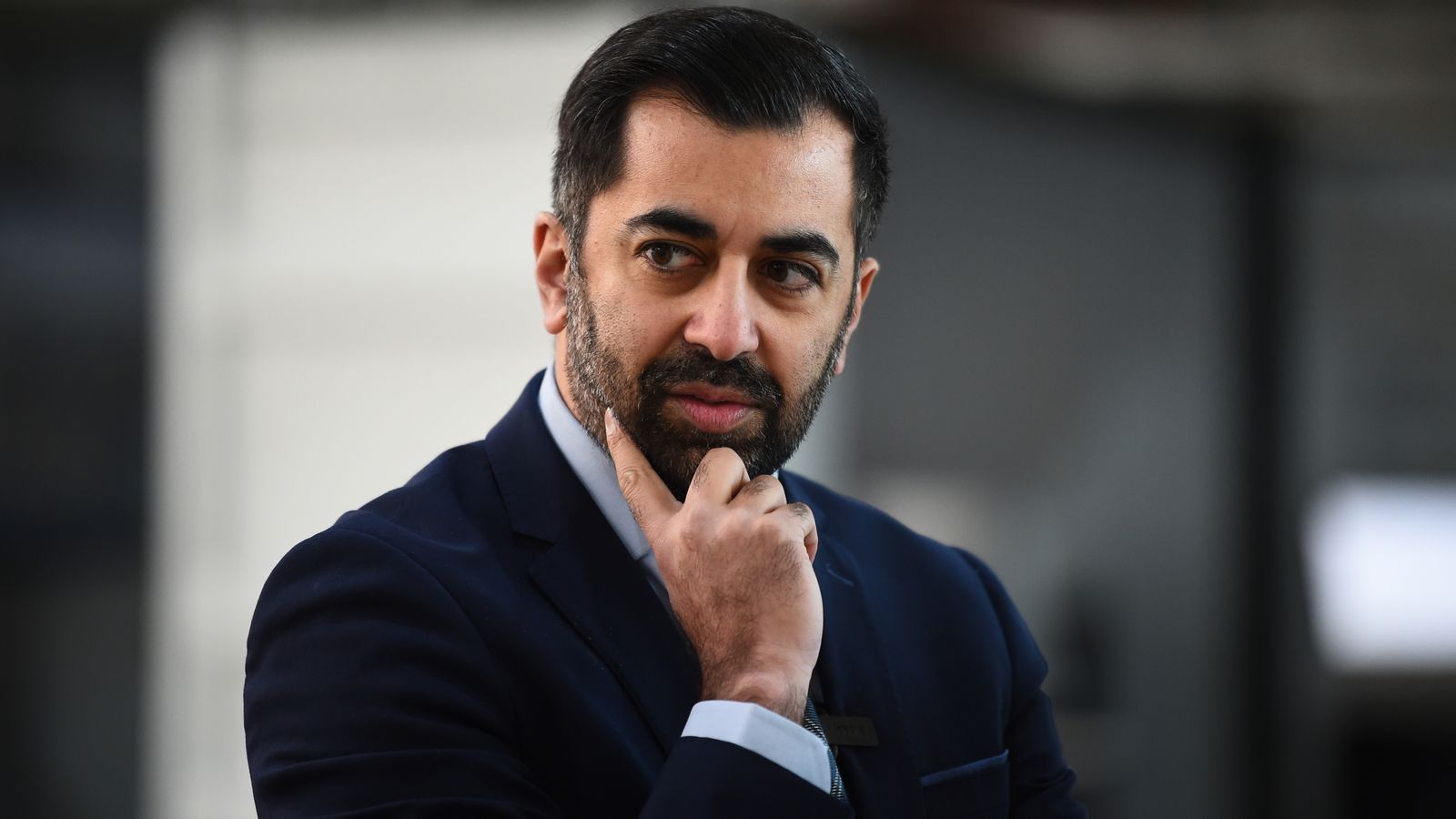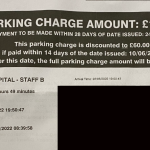Scotland’s First Minister has invited Sir Keir Starmer to Edinburgh for talks on how their parties could co-operate following a general election.
Humza Yousaf said he believes the Labour leader “will undoubtedly be the next prime minister” – pointing to polls giving the Opposition a 20-point lead.
In a letter to Sir Keir, he said differing political views should not “prevent us being able to work together”.
Politics Live: ‘Disappointing’ for Israel to reject two-state solution
He wrote: “I hope you will accept this invitation to meet and that we can establish a working relationship in the interests of the people we represent.”
Previously, Mr Yousaf said the SNP’s conditions of working with Labour would be Sir Keir paving the way for a future Scottish independence referendum.
In his letter, published on Sunday, the Scottish first minister made clear independence is still a priority, but said there were other things they could work on – including reducing child poverty and strengthening relations between the UK and Scottish governments.
Politics latest: ‘Disappointing’ for Israel to reject two-state solution, says Shapps; US election is race of ‘least disliked’ – former ambassador
Grant Shapps rejects claims the army will shrink further after 1930s danger warning
Jeremy Hunt hints at further tax cuts in upcoming budget as he compares himself to Nigel Lawson
Speaking later to the BBC’s Sunday With Laura Kuenssberg show, he said: “When it comes to Keir Starmer being the next prime minister of the United Kingdom, which I think he absolutely will be, I should say I’m very willing to work with an incoming Labour government.
“I think there’s plenty that we can work on. There will be disagreements – the constitution perhaps being the obvious one.”
It follows rising tensions between the SNP and Westminster over the past year, after the government took the unprecedented step of blocking Holyrood’s gender reform bill – a move branded a “full-frontal attack” on Scottish parliament.
The SNP also want another referendum on independence – something both the Conservatives and Labour have rejected.
Asked what policy areas they could co-operate on, Mr Yousaf said he wanted to see Sir Keir commit to tackling child poverty by scrapping the two-child benefit cap.
The policy prevents parents from claiming child tax credits or universal credit for a third or subsequent child born after April 2017.
Please use Chrome browser for a more accessible video player
Mr Yousaf said scrapping it “would lift 250,000 children out of poverty across the UK, 15,000 children here in Scotland”.
He also called for the bedroom tax to be scrapped, saying it is “keeping too many people in poverty”.
Read more from Sky News:
SNP rejects using next election as ‘de facto’ referendum
Analysis: SNP in damage limitation mode
The next general election is not expected until the second half of this year.
Labour strategists believe they need a huge turnaround of votes north of the border if they want a majority in the House of Commons.
Polls have suggested the SNP’s political dominance in Scotland may, after 16 years, be on the wane – not just at the general election, but at the Holyrood elections in 2026 too.
Mr Yousaf said Labour does not need Scotland to win, saying he was “sure” Sir Keir’s party would gain the most seats when the nation goes to the polls.
He has previously said he will not use the election as a de facto independence referendum, in a shift away from the strategy employed by former first minister Nicola Sturgeon.
Ian Blackford, the former SNP Westminster leader, said on Sunday he believed his party could still turn things around – but urged it to drop attacks branding Labour and the Conservatives as the same.
“I think we have to honestly say to the people in Scotland: ‘Of course a Labour government is better for Scotland than a Tory government’,” he told Scotland on Sunday.
Scottish Labour leader Anas Sarwar acknowledged if his party does win, there will still be a “raging debate” about independence.
Rather than using a potential election victory to “endorse the union”, he said: “I want to persuade people that we can make Scotland work within a devolved settlement.”






















